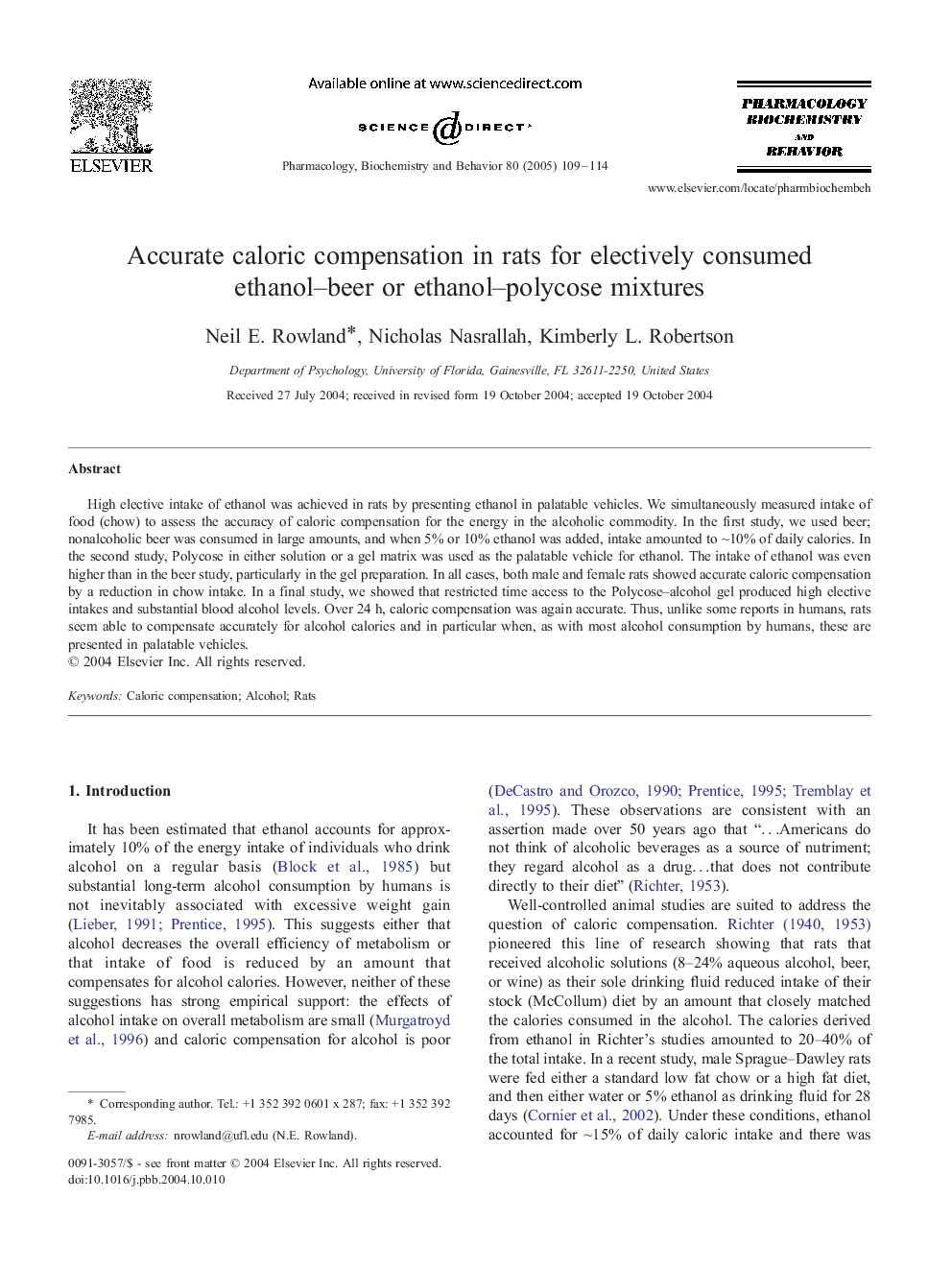| Article ID | Journal | Published Year | Pages | File Type |
|---|---|---|---|---|
| 10838593 | Pharmacology Biochemistry and Behavior | 2005 | 6 Pages |
Abstract
High elective intake of ethanol was achieved in rats by presenting ethanol in palatable vehicles. We simultaneously measured intake of food (chow) to assess the accuracy of caloric compensation for the energy in the alcoholic commodity. In the first study, we used beer; nonalcoholic beer was consumed in large amounts, and when 5% or 10% ethanol was added, intake amounted to â¼10% of daily calories. In the second study, Polycose in either solution or a gel matrix was used as the palatable vehicle for ethanol. The intake of ethanol was even higher than in the beer study, particularly in the gel preparation. In all cases, both male and female rats showed accurate caloric compensation by a reduction in chow intake. In a final study, we showed that restricted time access to the Polycose-alcohol gel produced high elective intakes and substantial blood alcohol levels. Over 24 h, caloric compensation was again accurate. Thus, unlike some reports in humans, rats seem able to compensate accurately for alcohol calories and in particular when, as with most alcohol consumption by humans, these are presented in palatable vehicles.
Keywords
Related Topics
Life Sciences
Biochemistry, Genetics and Molecular Biology
Biochemistry
Authors
Neil E. Rowland, Nicholas Nasrallah, Kimberly L. Robertson,
